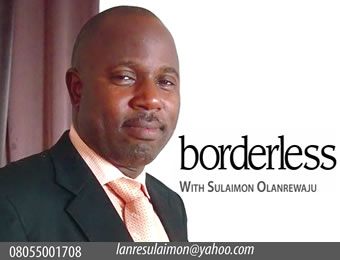By midnight today, we will all be welcoming one another into a New Year but will the New Year bring new experiences for Nigerians or will it be a continuation of the old experiences? The outgoing 2017 has been a year of anguish, pain, sorrow, bloodletting and disappointment, will the ensuing 2018 be different? Will Nigeria have an experience that is different from the old one or will 2018 be a repeat of 2017?
Unemployment escalated in 2017. According to the National Bureau of Statistics (NBS), over four million Nigerians were thrown into the labour market in the first nine months of this year. In a similar vein, the total number of unemployed and underemployed people in the country spiraled to 40 per cent at the end of September.
The bureau also noted that combined unemployment and underemployment rate for the entire youth labour force was 52.65 per cent or 22.64 million (10.96 million unemployed and another 11.68 million underemployed) by Q3 of the outgoing year.
Now, should we expect a reduction in the rate of unemployment in the country in the New Year or will 2018 be a continuation of the 2017 experience?
President Muhammadu Buhari said in December 2015 that the Boko Haram group had been technically defeated. But since he made that announcement, over 1,000 Nigerians had been killed by the group in its various attacks. The insurgents have become more violent and virulent. They have also become more adept in escaping the prying eyes of security operatives to the extent that quite a number of men in uniform have fallen victims to Boko Haram attacks. In the outgoing year, at least 68 soldiers and four policemen were killed by the insurgents. These exclude the civilian casualties that run into several hundreds.
Will the situation be different in the New Year?
Another ugly incident that marked the outgoing year is non-payment of salaries by state governments. This got to a head in July when a 54-year old director in Kogi State civil service committed suicide about 10 days after his wife was delivered of a set of triplets after 17 years of childlessness. The late director, Edward Soje, was said to have been owed 11 months salaries by the state government. He was so oppressed by non-salary-payment-induced poverty that the joy of becoming a father after 17 years of waiting meant nothing to him. He killed himself to escape hardship.
With the exception of four or five states, almost all other states in the country owe their workers salaries. The governors owe salaries, yet they pay themselves security votes on a monthly basis. The governors owe salaries, yet they go about with a long retinue of aides and a long convoy of vehicles. The governors owe salaries yet they travel abroad at the drop of a hat.
Will the governors change in 2018 or will 2018 change them? Will the experience for Nigerian workers be different in the ensuing year or will it be same of the same?
According to General Abdulsalami Abubakar, former Military Head of State, clashes between herdsmen and farmers resulted in the death of at least 2,500 persons and displacement of a minimum of 62,000 people in Kaduna, Plateau, Nasarawa and Benue states.
As unsettling as that is, the most worrying part is that it appears nothing is being done by the government to stem the tide. Security agencies are always a step behind the herdsmen. In almost every case, the herdsmen would have unleashed terror on the farmers, killing, maiming, raping and disappearing into the thin air before the security operatives arrive for the post-mortem. The situation is so bad that farmers are beginning to lose faith in security operatives.
So, will there be a change to this in 2018?
The United Nations Office for Drug and Crimes (UNODC) in its corruption report released in August said Nigeria spent N400bn annually on bribes to public officials. Similarly, the National Bureau of Statistics in its 2017 National Corruption Survey said 46.4 per cent of Nigerian citizens had “bribery contact” with police officers, 33 per cent with prosecutors and 31.5 per cent with judges/magistrates.
So, in Nigeria, corruption has assumed a frightening proportion. It is no longer about who is corrupt, it is about who is not corrupt and that can be likened to looking for a virgin in a maternity ward. Here, corruption has become the rule, not the exception. It is assumed that only fools shun corruption in Nigeria.
Corruption is the main business of the ruling class; it is also the preoccupation of the hoi polloi. The nation’s leaders assume they occupy public office for private gains. They create crevices that facilitate diversion of resources from government coffers to themselves and their cronies. Almost all activities of those in leadership in the country are geared towards self-enrichment.
The nation’s refineries are not functioning optimally as a result of corruption and the country is forced to depend on imported fuel. It is corruption that killed the railway system and made most of the roads in the country impassable. Corruption supervised the interment of the education system. Corruption is also responsible for the lackluster health services in the country.
To have a different experience in the New Year, our leaders have to travel in a new direction. If they keep behaving as they have always done, nothing will change. If the leaders do what is right, the nation will turn in the right direction.
Who will scale down unemployment rate? It is the leaders by introducing the right policies.
Who will checkmate Boko Haram insurgents and rampaging herdsmen? It is the leaders by taking the right step.
Who will solve the problem of non-payment of salaries? It is the leaders by the right management of resources.
Who will get rid of the demon of corruption? It is the leaders by living right and enforcing the law.
Rot in a fish starts from the head and so is soundness. If the leaders will do what is right, the New Year will be the country’s new dawn.
Happy New Year.







